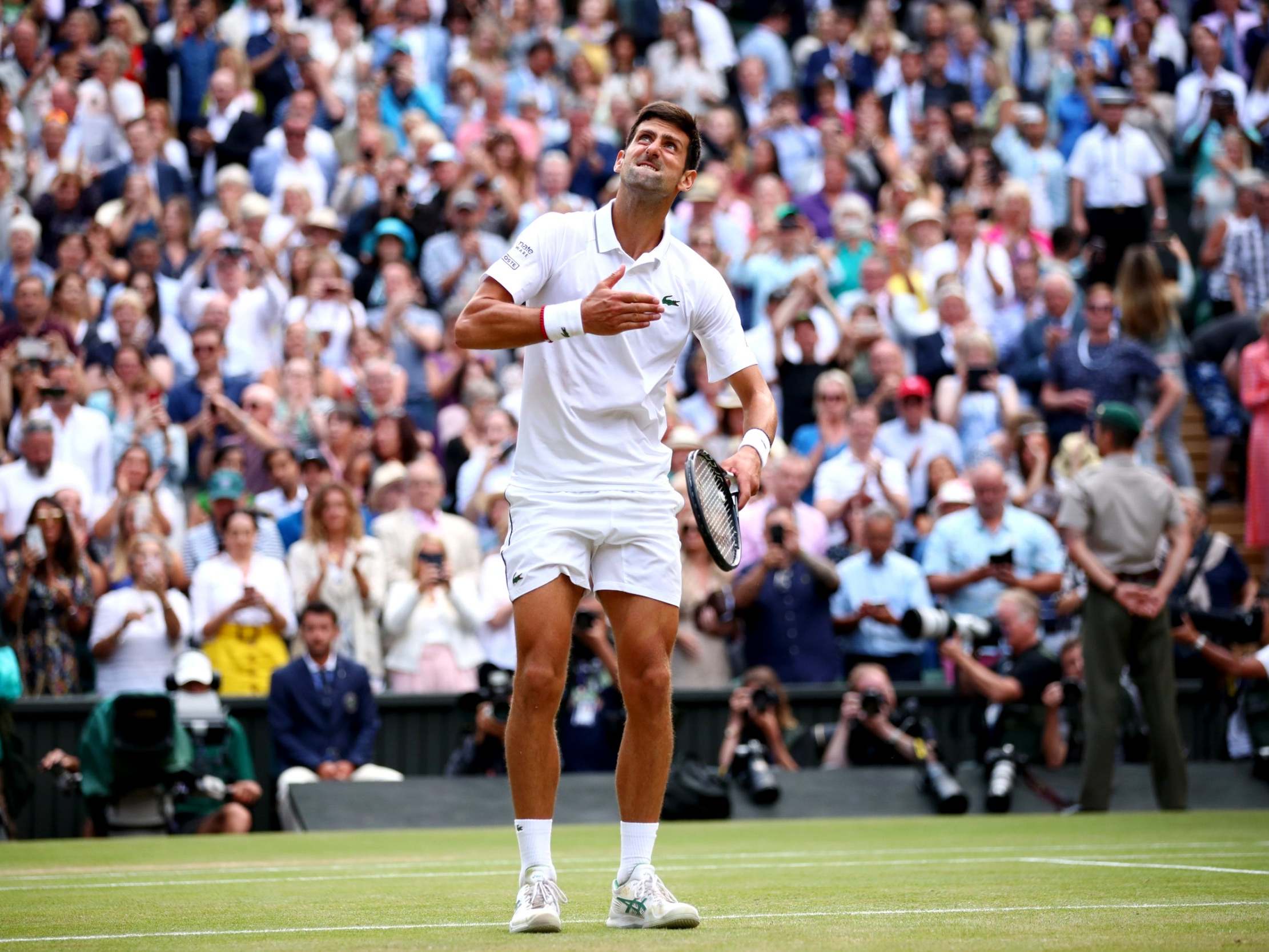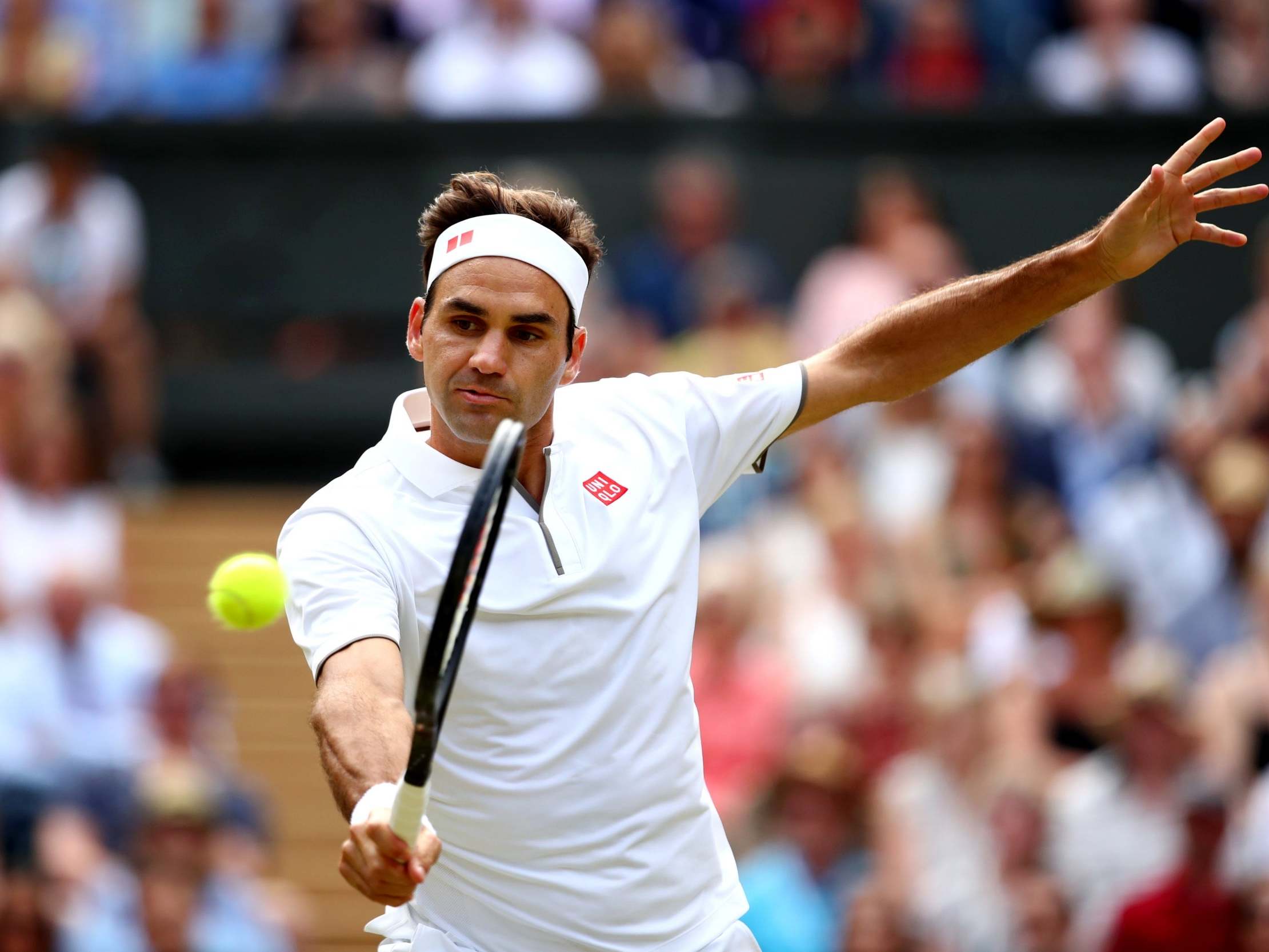Wimbledon 2019: How Novak Djokovic’s win over Roger Federer became one of the greatest finals of all time
Djokovic beat Federer 7-6(5), 1-6, 7-6(4), 4-6, 13-12(3) in a record-breaking final

Your support helps us to tell the story
From reproductive rights to climate change to Big Tech, The Independent is on the ground when the story is developing. Whether it's investigating the financials of Elon Musk's pro-Trump PAC or producing our latest documentary, 'The A Word', which shines a light on the American women fighting for reproductive rights, we know how important it is to parse out the facts from the messaging.
At such a critical moment in US history, we need reporters on the ground. Your donation allows us to keep sending journalists to speak to both sides of the story.
The Independent is trusted by Americans across the entire political spectrum. And unlike many other quality news outlets, we choose not to lock Americans out of our reporting and analysis with paywalls. We believe quality journalism should be available to everyone, paid for by those who can afford it.
Your support makes all the difference.It will go down not only as one of the greatest Wimbledon finals of all time, but as one of the greatest tennis matches in the history of the sport.
Many thought something like this would never happen again. Not after 2008, when Rafael Nadal beat Roger Federer 6-4, 6-4, 6-7(5), 6-7(8), 9-7 in exactly 4 hours and 48 minutes of play, and dropped to his knees in jubilation in the darkness.
This runs it close. Perhaps not in quality: Novak Djokovic’s focus wavered uncharacteristically, while Federer’s aggressive game plan resulted in far too many unforced errors. But there was perhaps even more drama, as Djokovic pulled himself back from the brink in a marathon fifth set to win his fifth Wimbledon title.
The raw numbers are just as unbelievably eye-boggling as 11-years ago: 6-7(5), 6-1, 6-7(4), 6-4, 13-12(3), in a match lasting four hours and 57 minutes. Most cruelly for Federer, he won 14 more points the the man who would eventually get his hands on the trophy. His trophy.
This may have been the 48th meeting between 37-year-old Federer and 32-year-old Djokovic, two of the greatest tennis players ever to have picked up a racquet. But it was also a match of firsts. The first time a Wimbledon final has ever lasted this long. The first time a Wimbledon final has been decided by a tiebreak. And the first time a player on the cusp of glory has squandered not one, but two Championship points.
This was also the first time since Djokovic beat Federer in the 2014 final that the men’s singles final here has gone to five sets. But this match, while endlessly thrilling, will not go down in the annals as a classic of the highest quality. It was far too tense for that. Instead, it will be forever remembered as a tactical arm wrestle that degenerated into an error-strewn epic: an always compelling five-set struggle that saw both men heaving themselves anxiously towards the finish line.
After close to five hours of play, the match even ended on a moment of impossibly high drama. Djokovic somehow managed to land an acrobatic crosscourt backhand, which Federer dumped into the net after it was incorrectly called out. The point was duly replayed and lost in an equally cruel fashion, but this time by Federer. He misjudged his positioning, spooning one final shot into the early evening twilight.
“I will try to forget this final…” he deadpanned, in his first interview after losing. “It was long and had everything. I had my chances, but so did he. I have to be happy with my performance. But Novak congratulations, that was crazy.”
Djokovic — who wrestled with a predictably partisan Centre Court crowd as well as a resurgent Federer — kept his celebrations to a moody minimum. Unloved throughout, he walked slowly to the net with a relieved smile on his face, shaking hands with a crestfallen Federer before turning to acknowledge either the crowd or his box. He then sunk to his haunches, once again putting a few blades of grass into his mouth.
“Well I think this was the most exciting and thrilling final I have ever been part of,” he later gasped. “We both had our chances and it is quite unreal to be two match points down and comeback.” But the greatest cheer was reserved for his final comment. “Roger is one of the greatest players of all-time, who I respect a lot,” he said. “And he inspires me, for sure.”

The Swiss is one of the only players on the ATP Tour with the luxury of playing two hometown tournaments per season. At the end of October he enters — and invariably wins — the Swiss Indoors Basel, where he once served as a wide-eyed ball boy. Before that, there is the small matter of Wimbledon at the All England Club, where he has become as much a part of tradition as immaculate lawns, strawberries and cream and violet hydrangeas.
Djokovic, who before this afternoon possessed half the number of Wimbledon titles as Federer, is about half as popular. This has often frustrated him. Last year, he was repeatedly goaded during a four-set victory over Kyle Edmund. And on Friday he snapped once again, gesturing irritably to the crowd after they cheered when Roberto Bautista Agut clinched the second set on a fortuitous net-cord.
Here, he was curiously muted and seemed wary of provoking the Centre Court crowd, whose cheers for Federer grew louder and louder as the final progressed. But Djokovic crucially kept his cool, only once losing his temper. Deep into that fateful fifth set he was reprimanded for swiping at the umpire’s chair. He was immediately able to be put the indiscretion behind him.

That he twice battled back in the fifth set as the crowd clamoured for his rival speaks volumes about his character. He defended two Championship points, going on to break Federer, before winning the third and final tiebreak. Unlike Federer he did not fluff his lines, holding his nerve to defend his crown and equal Bjorn Borg’s five Wimbledon titles.
Join our commenting forum
Join thought-provoking conversations, follow other Independent readers and see their replies
Comments